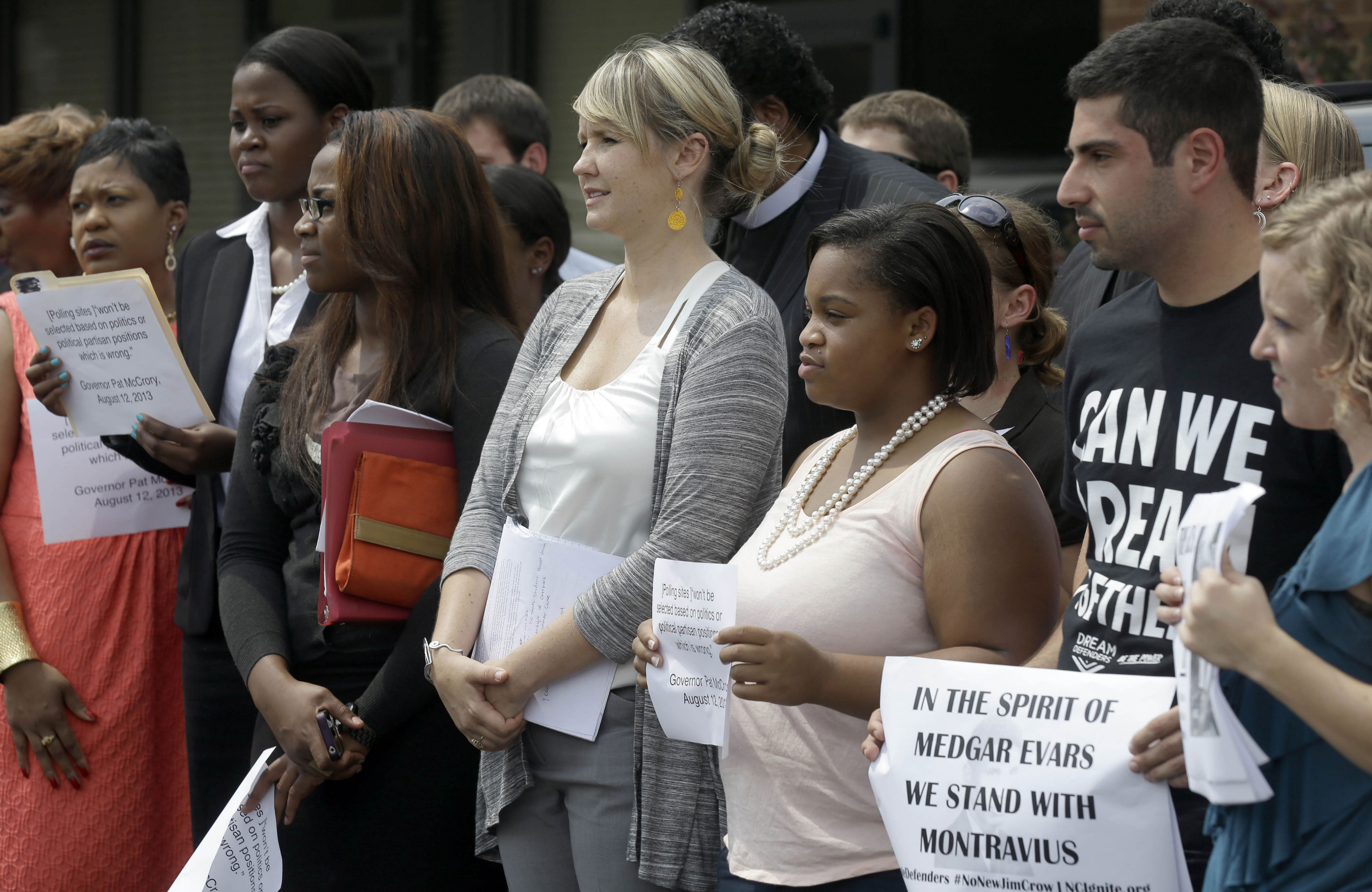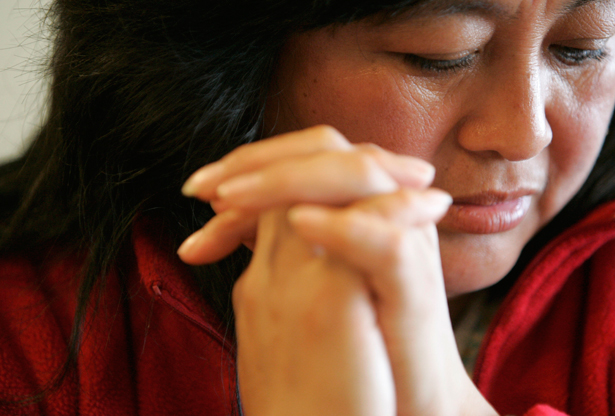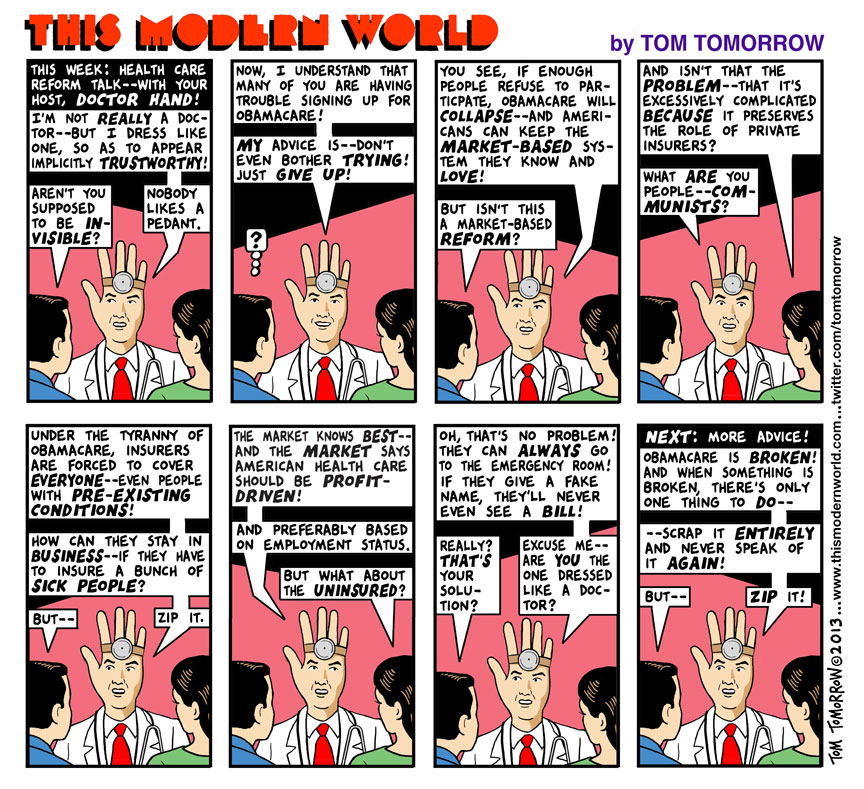
‘The Voice of Greek Radio Falls Silent’ ‘The Voice of Greek Radio Falls Silent’
Syriza tables no-confidence motion as Greek government evicts workers from state broadcaster.
Nov 7, 2013 / Blog / Maria Margaronis

Voter Suppression Backfires in North Carolina, Spreads in Texas Voter Suppression Backfires in North Carolina, Spreads in Texas
Efforts to restrict student voting failed in North Carolina, but voter suppression attempts accelerated in Texas during the last election.
Nov 7, 2013 / Blog / Ari Berman

Labor Rights for All: The Fight Against Modern-Day Slavery Labor Rights for All: The Fight Against Modern-Day Slavery
The domestic workers’ rights movement offers powerful lessons for the broader fight against forced labor, trafficking and servitude.
Nov 7, 2013 / Foreign Policy In Focus / Nisha Varia and Foreign Policy In Focus

The Miami Dolphins Showcase Bully Solidarity The Miami Dolphins Showcase Bully Solidarity
As Dolphins players rush to support accused racist bully Richie Incognito, it is worth asking who is pulling the strings.
Nov 7, 2013 / Blog / Dave Zirin

Barnard College’s New Sex Restrictions Barnard College’s New Sex Restrictions
If the Barnard administration takes the idea that adult women should have control over their bodies seriously, then students and RAs should be able to decide for themselves how oft...
Nov 6, 2013 / StudentNation / George Joseph and StudentNation

Free the Media! Free the Media!
It’s time to get back to our roots—the grassroots—to fight for reform of an increasingly monopolistic and manipulative media.
Nov 6, 2013 / Editorial / John Nichols and Robert W. McChesney
Censored in Colorado Censored in Colorado
America After 9/11 Since 9/11, the Department of Justice has prosecuted more than 500 terrorism cases, yet there remains scant public understanding of what these federal cases have actually looked like and the impact they have had on communities and families. Published by The Nation in collaboration with Educators for Civil Liberties, the America After 9/11 series features contributions from scholars, researchers and advocates to provide a systematic look at the patterns of civil rights abuses in the United States’ domestic “war on terror.” * * * This fall, The Nation introduced a new series of articles on “America After 9/11,” the first of which described the pattern of rights abuses in federal terrorism prosecutions and conditions at the nation’s only federal supermax prison, ADX, in Florence, Colorado. The piece described the case of Fahad Hashmi, a former student of mine at Brooklyn College. Fahad had been charged with providing material support for terrorism after he let a friend use his cellphone and stay in his London apartment with luggage containing raincoats, ponchos and socks that the friend later took to an Al Qaeda leader in Pakistan. After three years in pre-trial solitary confinement at the Metropolitan Correctional Center in Manhattan, Fahad pleaded guilty and was transferred to ADX to serve his fifteen-year sentence. Fahad has been at ADX for more than three years. He has subscriptions to The Nation and The New York Times, paid for by his family. But the prison refused to allow him to have the Nation issue that contained my piece. Last year, a piece in the Times titled “Fighting a Drawn-Out Battle Against Solitary Confinement” was also banned. Opened in 1994 as a behavioral management unit, ADX officially houses the most dangerous prisoners in the federal system. Since 9/11, however, any sort of terrorism conviction can land a person there. Once incarcerated at ADX, there is little effective recourse for challenge. Today, ADX disproportionately houses Muslims. Please support our journalism. Get a digital subscription for just $9.50! In “general population,” prisoners spend twenty-three hours a day in cells that measure eighty-seven square feet. Prisoners eat meals alone, within arm’s reach of their toilet. ADX offers TV “classes,” which count toward good behavior. One is “The Magic of Everyday Communication.” The perverse cruelty of teaching face-to-face communication to people enduring years of solitary confinement boggles the mind. ADX walls itself off from public scrutiny. It has allowed only one visit by human rights groups in twenty years, denied visitation requests from two UN special rapporteurs on torture and turned down nearly all press requests. (One monitored media event occurred in 2007.) With little access for journalists or human rights groups, ADX has a formidable wall of silence around it. The banning of reading material that dares to describe the nature of Fahad’s confinement is a reminder of the repressive conditions that prisoners on US soil continue to face. More in the ‘America After 9/11’ Series: How Tarek Mehanna Went to Prison for a Thought Crime As the government embraces a “counter-radicalization” approach to counterterrorism, prosecutors are turning radical beliefs into criminal acts. by Amna Akbar Guantánamo in New York City Americans remain mostly blind to the abusive treatment of terror suspects on US soil. by Jeanne Theoharis Where’s the Outrage When the FBI Targets Muslims? The FBI employs the same repressive tactics as the NYPD in its broad surveillance of Muslim communities. Why does the FBI get a pass? by Diala Shamas How Mohammed Warsame Became an Accidental ‘Terrorist’ In the wake of 9/11, prosecutors have embraced “special administrative measures” to keep terrorism suspects guilty until proven otherwise. by David Thomas
Nov 6, 2013 / Editorial / Jeanne Theoharis

Border Patrol Will Continue Using Lethal Force on Rock-Throwers Border Patrol Will Continue Using Lethal Force on Rock-Throwers
A decision by US Border Patrol this week “effectively gives a license to kill Latinos on both sides of the border,” according to activists.
Nov 6, 2013 / Blog / George Zornick

Health Care Reform Talk With Doctor Hand Health Care Reform Talk With Doctor Hand
The market knows best, and the market says American healthcare should be profit-driven!
Nov 6, 2013 / Blog / Tom Tomorrow

Thinking Like a Conservative (Part Five): Epistemology and Empathy Thinking Like a Conservative (Part Five): Epistemology and Empathy
Have you ever noticed how many conservatives cannot believe a sane, sincere, intelligent person could disagree with them? That's a central component of the right-wing mind.
Nov 6, 2013 / Blog / Rick Perlstein
